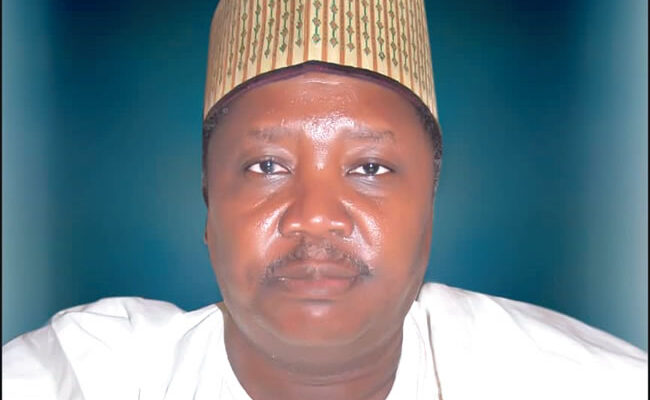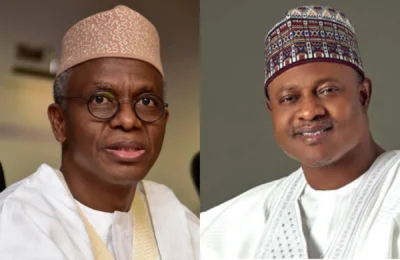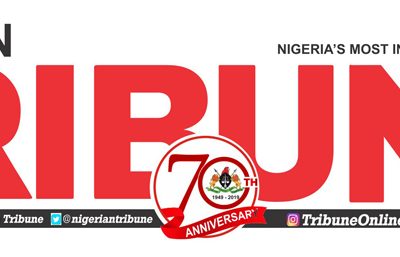

Professor Faruk Rashid Haruna is the current President of the Committee of Provosts in Nigeria and the provost of the Federal College of Education (FCE), Kotangora. He spoke with MODUPE GEORGE on why teachers should be licensed to practise, his achievements in office, and his plans to resuscitate the game of badminton in colleges of education in Nigeria. Excerpts:
Recently the registrar of the Teachers Registration Council of Nigeria (TRCN), Professor Olusegun Ajiboye, said that no category of teachers is exempted from the professional qualifying examination conducted by the council to be certified as professionals. What is your take on this?

I think it’s a step in the right direction considering the problems that education is encountering today in the country in terms of quality, which is traceable to having crops of teachers who are poorly prepared for the job or who did not have the basic training that could prepare them both in pedagogy and methodology of teaching. As far as many professions are concerned in Nigerian one of their basic requirements is licensing, which is done through examination. In fact, the licenses are renewed periodically.
The whole effort is about separating the unqualified teachers from the good ones. Teachers with the right knowledge, attitude and skills that are required for laying a solid foundation for the attainment of educational objectives. Teaching in Nigeria has become an all-comers job; anybody can become a teacher in Nigeria. I think it is high time we regulated, supervised and ensured that those who have the required qualifications are the ones licensed to do the job. I am happy that the process has started and I believe that all categories across the levels should be involved. The licence should also be renewed periodically.

Regarding the incessant and prolonged strikes in universities in the country today, what other means do you think the Academic Staff Union of Universities (ASUU) can deploy as a tool to address their grievances with the Federal Government aside from strike?

We have deployed strike as a tool on several occasions, but it’s no longer working. I personally do not believe that the instrument of strike is effective when it comes to resolving issues between the ASUU and Federal Government. It is just a temporary measure; it does not stop the agitation from recurring at the end of the day. On different occasions, the government had pretended to have agreed on some terms with the union only to disagree later.
However, lobbying is officially an acceptable tool in Nigeria, so, we can lobby. I think it will make a lot of sense to have a situation where parents can organise themselves to be part of the process; assisting to lobby the government on behalf of ASUU. We can also have all the relevant stakeholders; students, parents, community leaders come to a roundtable to share their concerns on some of these issues. Make them understand the plight of lecturers and then carry them along when it comes to resolving issues with the Federal Government. They can assist on how solutions can be provided to some of the issues militating against the tertiary education system in the country.
You are the current president of the Committee of Provosts in Nigeria. What have you done differently?
So far, so good, I have been able to achieve a lot within the shortest time possible on my assumption of office. Personally, I believe in having wider consultations and dialogues on issues that cut across the institutions that are under me. For instance, recently, there were difficulties in paying the November, December and January salaries across the colleges, but we were able to seek government’s intervention to salvage the situation. Despite the fact that the government claimed that there was no bailout, it was able to reason with us and the salaries were paid; ditto the revitalisation fee. Also, we have been able to organise a defense exercise, whereby each college was asked to bring its priorities forward and defend itself as an institution before the money is released to them to carry out various renovations and upgrading of the existing facilities in their colleges. Also, we have been holding meetings with unions of the colleges so that both the managements and unions can begin to see things from the common angle and agree to terms, rather than having conflicting opinions about issues affecting the system, most especially on the current drive by the unions to sponsor the bill on the dual mode, which now has the backing of the committee of provosts. We are solidly behind the unions in making sure that this is achieved in no distant time as well as other issues that are cropping up in our colleges.
We try as much as possible to see that we intervene in colleges where there are frictions between the leaderships and the unions. We believe that by dialoguing and bringing the two parties together we will always have hitch-free operations in our colleges. There are also a lot of plans underway on how we can improve on revenue generation in our respective colleges of education. We are also planning to have a website through which the colleges can relate with one another and share other common interests especially on issues relating to certification of students.
What prompted the idea of establishing the Kotangora Intellectual Discourse Committee (KIDC) in your college?
I want to sincerely thank the College of Education Academic Staff Union(COEASU), FCE, Kotangora and chairman of KIDC, Dr Yekini Tokunbo, for bringing up the idea of establishing a discourse committee in the college which personally as a provost I’m very proud of. We have come to realise that a large number of our staff are deficient and weak in the area of research and academic publication despite belonging to an academic system, where you either publish or you perish. KIDC was established in a bid to improve creativity, innovation and the research base of the FCE, Kotangora, which now serves as a means of promotion to the academic staff. Since the commencement of the initiative, we have recorded a wide range of improvements in different areas. Our staff are becoming more creative and innovative; they are taking more interest in publishing and have really improved in the area of electronic presentation. In a way, we are gradually moving and departing from the analo operation into an electronically-operated institution. This is one programme that if I have my way as the chairman of the committee of provosts I will introduce in all the colleges of education in Nigeria. The programme has in no more measure projected the image of academic staff in our college.
You have been charting the course of the FCE, Kotangora for over four years. What have been your achievements?
My achievements in FCE, Kotangora can be divided into four different categories, namely renovation of the existing structures, construction of new structures, provision of adequate teaching and learning equipment and facilities and development of laudable innovations such as the KIDC. We have renovated the entire hostels in the college; four in the female hostel and five in the male hostel. We have renovated the entire administration blocks, both the old and the new. Also, we are constructing a new 400-capacity male hostel, 1000 capacity ICT centre which is nearing completion, a new two-storey library which is one of the biggest in the whole of the North-Central as well a 1000 capacity multifunctional hall, which is also nearing completion.
We have equally built a 250-capacity lecture theatre each for the School of Science and School of Languages and the office blocks housing the dean and heads of department for the School of Education and School of Art and Social Sciences among other laudable achievements in the space of four years. The entire college community is under serious renovation presently and new buildings are springing up every day. A sum of N 697 million has just been approved for construction of the School of Early-child Educational Care, just as we have ordered the procurement of hospital equipment to the tune of N130 million for the expansion of the college clinic, just to mention a few.
Have there been challenges?
Of course, there have been challenges; part of them is having to ply the deplorable Abuja-Kotangora road every day to source for money from Abuja; getting honest and sincere people to serve as contractors who would produce the required structures as stipulated. Another big challenge is with the issue of automation. When I came on board, every operation was done manually in the college. We had to automate cash collection and results processing. Achieving this was not easy, because the people were used to their old ways of doing things, meanwhile, you came in to introduce new ways that are more transparent and clear, so, the people were bound to resist such changes.
As a lover of badminton and a one time national player, what effort are you making to cultivate this game among your students and in colleges of education?
Badminton has always been part of me; I had been a national player and a member of the board for close to 20 years. While I was in Ahmadu Bello University(ABU), Zaria, I was able to establish an academy of young talented Badminton players that I identified myself with from the nooks and crannies of Nigeria. I got them admitted into the university and placed them on the programme. I’m happy to say that at the end of it all, two of them came out successful; one of them became the captain of the game in Nigeria and presently, he is working in ABU, courtesy of the same badminton programme.
However, here in FCE, Kotangora, I’m building a facility that can, at least, accommodate four badminton clubs, and I’m planning to get Badminton bats of the international standards with which the game can be played. With time, I’m also likely to host colleges of education championship here as soon as the facility is opened to the public. I know that I have invested a lot in Badminton and I’m still going to invest a lot more. I am also going to encourage all the provosts in the committee to ensure that their colleges participate in competition. I have co-sponsored competitions at Suleja, Minna, among others. Nationally, I’m going to employ a badminton coach, run an academy here in FCE, Kotangora, as well as admit students into the college to run the programme.
More so, Kontagora is a home of hockey, but incidentally we don’t have a complete hockey team in the college. So, I’m planning to get young people who are very good at hockey, but who also possess the right qualifications to be admitted into the college so that the game of hockey can be revived. By the time you are using admission criteria, you are going to motivate a lot of young people who might not even be interested in coming to school.
READ ALSO FROM NIGERIAN TRIBUNE








